 Your new post is loading...
 Your new post is loading...
The different aspects of nerve damage after surgery are taken into account through this article. Focus of the article is on understanding about this complex medical problem through explanation of important points. After undergoing surgery, there's a possibility that the nerves could result in damage or injury due to bruises or cuts made by scalpel at the time of surgery. The inflammation of the tissues surrounding the nerves can also result in damage. The nervous systems serves the very important role of maintaining the function of various activities in the body. The nervous system can basically be divided into two types, the central and peripheral nervous system. Injury to the nerves is a serious matter, although many times, the damage can be repaired. Neuropraxia is a type of nerve injury where the structure of the nerve is not altered, however, the nerve impulses are interrupted as a result of injury. With this condition, several of the normal coordinated movements of the body cannot take place.
Injury to the nerve can occur as a result of direct trauma. The peripheral nerves, or the central nervous system, are at a higher risk for injuries, especially after experiencing an injury such as a bone fracture. The peripheral nerves are located in the extremities, they are the nerves found directly outside the brain and spinal cord. It's essential to understand how easily these can become injured and how the process of nerve regeneration occurs gradually. Generally, the time it takes for a nerve to heal can be determined by the severity of the nerve damage. Also the type of injury that resulted in nerve damage can influence the recovery process. Neuropraxia is one of the least severe types of nerve injury, caused by a complete block of nerve transmissions where the nerve fibers have remained intact.
Dr Scott Berman MD & Neuropathy Patient discusses the strong overlap between Neuropathy pain, anxiety and depression Pain & depression often occur together There is a great correlation between neuropathy pain, anxiety, and depression. Each of the three can increase the risk of developing the other two. About 30-60% of people with chronic pain develop feelings of depression and anxiety as well as pain and depression can occur simultaneously 30-50% of the time, each causing the other. Anxiety is naturally expected if an individual has been diagnosed with a chronic illness such as neuropathy. The condition can be almost unavoidable and can take many forms. Depression on the other hand, is often confused with the disease, where continuous problems or complications in function can be labeled as phychological issues. However, physical symptoms often have physical causes and it's not uncommon for emotional stress to develop when diagnosed with a medical disease such as neuropathy.
Neuropathy is a medical term used to describe nerve damage that affects all regions of the body. There are several different types of neuropathies, each classified according to the affected area of the body. Neuropathy can be categorized as inherited, such as diabetic neuropathy, or acquired, resulting from trauma or injuries on the nerves. The symptoms for each type differ depending on the region but the majority of symptoms include tingling, loss of sensation, muscle weakeness, and pain. Neuropathy can be caused by a variety of factors. Diabetes is an underlying condition that can cause many complications, including the development of neuropathy. Imbalances in the production of hormones can be a cause of leg and foot neuropathy. Also, nutritional deficiencies, alcoholism, and toxins can often lead to the development of this condition.
Temporomandibular joint disorder, or TMJ, is a disorder that most commonly affects the joint found in between the back of the jaw and the skull. TMJ can be a difficult condition and, in some cases, the disorder could lead to the development of anxiety. Anxiety is usually a condition that occurs gradually over time as a result of life experiences or genetics but temporomandibular joint disorder may influence the development of this condition. It might appear strange to associate a joint disorder in the jaw with anxiety but TMJ causes a great variety of symptoms that cause the development of anxiety. In other cases, TMJ often doesn't cause anxiety, instead it makes anxiety worse.
There are 12 pairs of cranial nerves. These are located within the cranium or skull. The cranial nerves are those connected directly to the brain or brainstem and they send signals to areas of the face and eyes. The cranial nerves control functions such as vision, hearing, facial movement, and the actions of several of the organs in the head, chest, and abdomen. Cranial neuropathy occurs when a single or more of the cranial nerves becomes damaged or injured. Injury to these nerves can occur for a variety of reasons, the most common being diabetes. Cranial neuropathy is a complication typically caused by an underlying condition as well as trauma.
Peripheral neuropathy, the condition caused by nerve damage and characterized by numbness, tingling, pain, weakness, and other sensations in the hands and feet, is known to be caused by systemic diseases, injuries, vitamin level abnormalitites, infections, or exposure to toxins. Despite these risk factors, peripheral neuropathy is mainly known to be caused by diabetes. Peripheral neuropathy can be painful, causing discomfort on the affected individual but, several treatments can help alleviate the symptoms and improve the condition. According to MedlinePlus, treating the underlying condition causing this type of neuropathy should be the first step for treatment. Treatment may be followed with medications or physical treatment to reduce the symptoms and gradually restore a person's health.
A five-part guide to peripheral neuropathy (damage to the peripheral nerves). Peripheral neuropathy is a medical condition caused by damage to the peripheral nervous system, the complex network of communications that transmits information from the brain and spinal cord to the rest of the body. Also known as the central nervous system, the peripheral nerves also send sensory information back to the brain and spinal cord, for instance, a message that the feet are cold or a finger is burned. When the peripheral nervous system becomes damaged, these intricate connections and communications could be interfered. Due to the function of every peripheral nerve in the body, when peripheral neuropathy occurs, a wide variety of symptoms can occur.
|
Weightlifters who experience a tingling sensation and numbness in the shoulder after a workout could be suffering from a temporary condition caused when there's excess pressure on the nerves. Changing the way certain exercises are performed can eliminate these sensations, just as warming up and stretching properly before starting any physical activity. But, if the tingling and numbness persist, an underlying condition could be causing the symptoms. The brachial plexus is a neural network that transmits spinal cord signals to the hands, arms, and shoulders. When these are damaged or injured, these nerves produce the well-known symptoms such as a tingling sensation, numbness, and even muscle weakness and decreased muscle control. The most common type of brachial plexus injury is called neuropraxia, also known as a stretch injury.
A research study conducted by Harvard Medical School reported that patients suffering with long term peripheral nerve injury showed progressive improvement in nerve motor function with the use of Low Level Laser Therapy (LLLT) leading to significant functional recovery. There are many different forms of near infrared lasers (NIR) on the market. In order to elicit nerve repair in peripheral nerves, the infrared light wavelength must be between 800 nm – 1100 nm. This range of wavelength allows for penetration of 4-6 inches deep within the tissue. Medical evidence shows that NIR triggers Nitric Oxide (NO) release, found to be extremely beneficial for neuropathy sufferers. Nitric Oxide (NO) increases blood flow to injured or damaged nerves, increases circulation, oxygen, and nutrient delivery to nerves, stimulates proper nerve transmission, decreases pain and muscle spasms, among other benefits.
Neuropathy results in a loss of sensation or movement in the body when a single or multiple nerves in different areas of the body are damaged or injured by genetics or numerous health conditions, including physical trauma from an injury, diseases or infections, or autoimmune disorders. Nearly 60 percent of people diagnosed with diabetes suffer from diabetic neuropathy. Despite the numbers, there are various home remedies available to help treat neuropathy, although not a substitute for medical treatment, these can help alleviate the symptoms associated with the condition.
Several types of neuropathy (nerve damage) are caused by diabetes. Learn about these diabetic neuropathies: peripheral, autonomic, proximal, and focal neuropathies. Explains what nerves are affected in each type of diabetic neuropathy. Diabetic neuropathy can be narrowed down into various types. The different types of neuropathies are broken down according to the different kinds of nerves affected which each serve different functions. An individual's symptoms and treatments will vary depending on the type of diabetic neuropathy. There are four types of diabetic neuropathy: peripheral neuropathy, proximal neuropathy, autonomic neuropathy, and focal neuropathy. Understanding and learning about the different types of neuropathy and their symptoms is important in order to determine the most appropriate option for treatment.
There are twelve nerves in the human body that exit from the central nervous system through openings in the skull, medically referred to as the cranial nerves. The 12 cranial nerves function by maintaining the various functions of these nerves, from allowing the eyes to blink to moving food through the gastrointestinal system, including the ability to sense flavors, aromas, sights, and sounds. Damage or trauma from an injury or disease from an underlying condition can affect a single or multiple of the cranial nerves and result in symptoms indicating cranial neuropathy. The symptoms a person may experience depend on which cranial nerve may have been damaged.
Peripheral neuropathy is a type of nerve damage that affects the function of the body's nerve signals to the arms and legs. This condition can be caused by a number of medical conditions including diabetes but, peripheral neuropathy can be reversible. According to research, supplementing essential acids, vitamins, and minerals can have beneficial effects on diabetic peripheral neuropathy. Over the course of long-term treatment, some individuals experienced a reduction in symptoms and better blood flow. More research shows that an increase in the consumption of a type of carnitine may be able to regain the regular sensation in their limbs. Replenishing vitamin and mineral deficiencies in the body can also help decrease the symptoms of peripheral neuropathy.
Peripheral neuropathy is an ailment that directly affects the nerves, not including the spinal cord or the brain. It is not a single disease, but a general term used to describe a variety of different disorders, caused when the peripheral nervous system becomes damaged. People who suffer from this nerve condition typically experience symptoms of burning pain, weakness, numbness, and/or a tingling sensation. The peripheral nervous system, consists of the nerves that run from the spinal cord and the brain to the rest of the body, such as the hands and arms, the feet and legs, the joints, the internal organs, and also the skin, nose, ears, eyes, and mouth. When these nerves are affected by peripheral neuropathy, it leads to pain and numbness to these areas.
|



 Your new post is loading...
Your new post is loading...

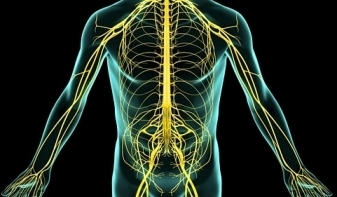

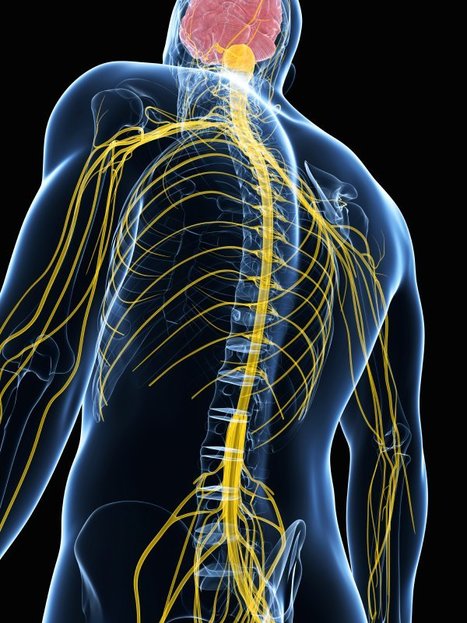



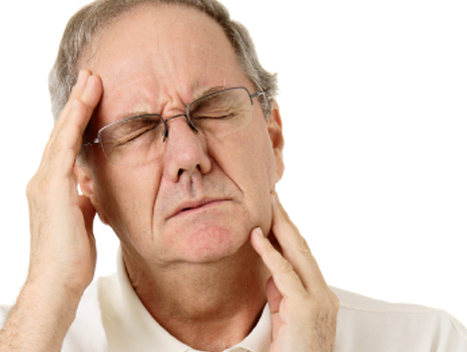
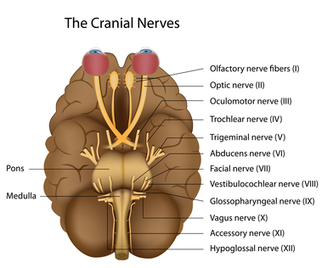
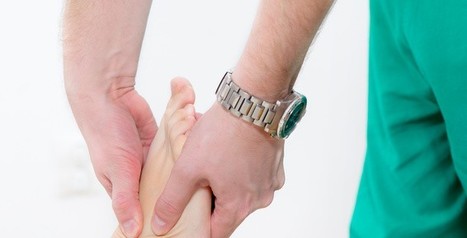


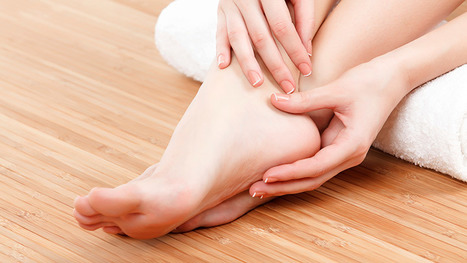


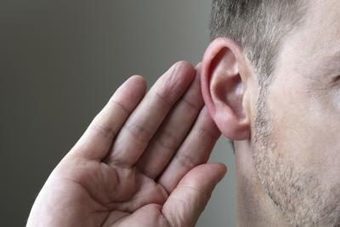

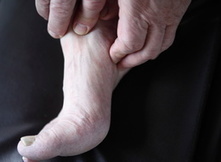





Surgery can occasionally lead to complications such as nerve damage or injury. Inflammation, bruising, or cuts at the time of surgery can result in the development of conditions such as neuropraxia, a condition where the structure of the nerve is not altered but results in blocked impulses from the nerves. For more information, please feel free to ask Dr. Jimenez or contact us at (915) 850-0900.